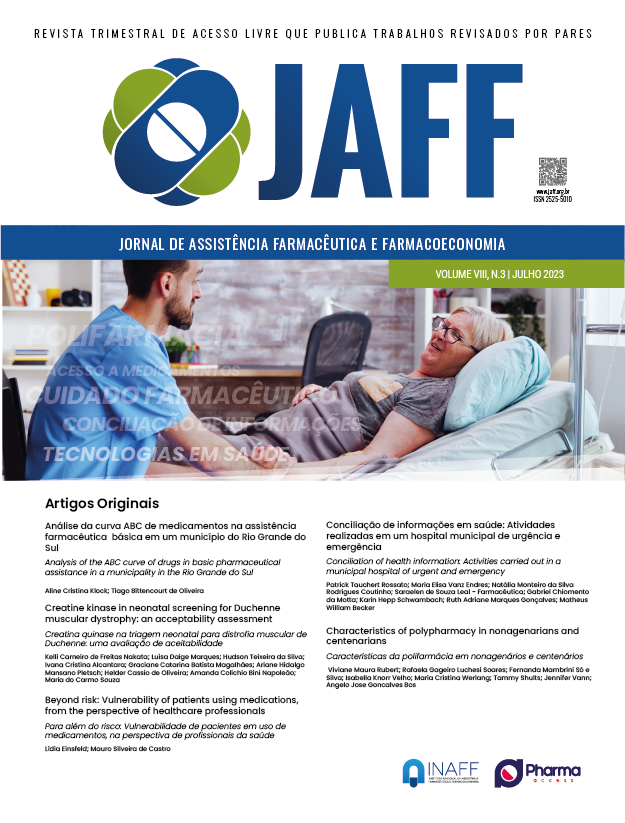Abstract
Objective: The present study evaluated the acceptance among parents of newborns to the creatine kinase (CK) test in the neonatal screening of Duchenne Muscular Dystrophy-DMD and raised possible barriers and elements that facilitate the acceptance of the test. Methods: The assessment of acceptance of the CK test for DMD screening was carried out through interviews, guided by a semi-structured script, with parents of newborns in the state of Mato Grosso, Brazil. Results: Six hundred and four parents participated in the research, only five being excluded for not meeting the eligibility criteria. The acceptance of screening among respondents was high (94.5%), surpassing that described in the retrieved literature. Long journeys to the collection site and the absence of information about the disease and the CK test can negatively influence parents regarding the performance of the test. The reduction in diagnostic delay seems to be a positive factor in the acceptance of screening. Conclusions: Non-mandatory neonatal screening for DMD using the CK test demonstrated high acceptance by the interviewed population; however, research has identified factors that can both motivate and discourage screening.

This work is licensed under a Creative Commons Attribution 4.0 International License.
Copyright (c) 2023 JORNAL DE ASSISTÊNCIA FARMACÊUTICA E FARMACOECONOMIA


